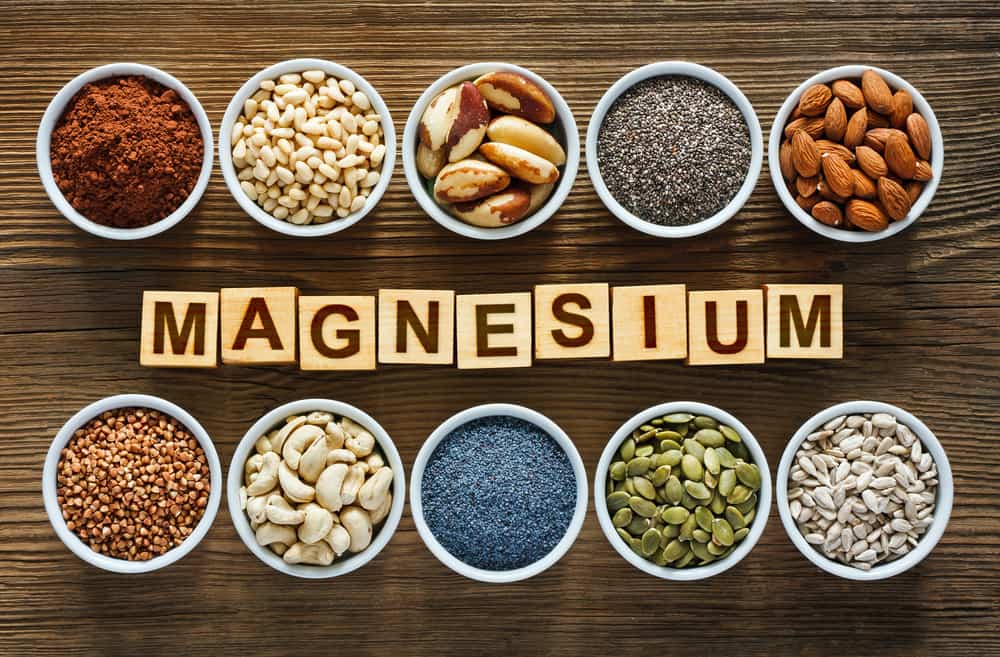Why Magnesium Is Essential for Optimal Health in Tampa?
I get a lot questions about what supplements are best for maximizing health and performance. Let me start with one of my top 3 supplements, magnesium. I’ll give you the rundown on how to decide if it’s for you and what form to take. To answer the first question, YES, it is for you. If it’s in my top 5, then pretty much everyone should be on it.
Magnesium is an incredibly important essential mineral that must be obtained through your diet; most of the population is deficient. Magnesium is involved in more than 300 different biochemical reactions in our bodies. It helps regulate muscle contraction, hydration, blood pressure, bone, brain, and heart health, bowel and brain function, cortisol (stress hormone) levels, mood, and energy.
Deficiency symptoms can include muscle cramps (big one), heart palpitations, anxiety, insomnia, headaches and migraines, constipation, and fatigue.
If you exercise and sweat regularly, you are losing magnesium that needs to be replaced. Yes, there are food sources, including pumpkin seeds, cashews and almonds, green leafy vegetables, and grains, but it is hard to get what we really need through diet unless you are really focusing on daily intake through food.
Many different forms of magnesium make it difficult to choose which one is best for you. They differ in how well they are absorbed and what tissues they tend to act on.
Some of the most common forms and what they work best for are:
- Magnesium Citrate: Constipation and Bowel Function
- Magnesium Threonate: Sleep and Brain Health
- Magnesium Glycinate: Sleep and Muscle Recovery.
- Magnesium Taurate: Brain Health, Cognition, and Heart Health
- Magnesium Malate: Muscle Soreness, Recovery, and Energy
There are more, but these are the main ones you will see in supplements, either individually or in combination. Different forms of magnesium tend to act on different tissues, so it is good to use various forms for muscle, heart, brain health, etc. Also, unfortunately, the most common form sold over the counter is magnesium oxide, a cheap but poorly absorbed form of magnesium, so one to be avoided as a solo form.
The main reasons we recommend magnesium in my clinic is for insomnia and constipation, with muscle cramps being a close third. We carry multiple combinations in the clinic to address different issues. Specifically, a combination that includes threonate and glycinate for sleep, this combination works really well and gets into the brain better than other forms.
Also, one with a mixture of glycinate and oxide when we want to improve sleep and constipation. Magnesium citrate is also a good one as a solo supplement for bowel function. Otherwise, a supplement that has a mixture of any of the above is a good choice.
Too much magnesium can cause loose stools. If this happens, simply back off the dose or try another form, such as Malate, which is gentler on the GI tract. Most people can tolerate doses in the 300 – 600 mg range, but others can tolerate higher doses. It is best to start low and build up for effect.
Common FAQs:
Magnesium is a natural muscle relaxer that also suppresses the stress hormone cortisol, making it a good supplement to improve sleep quality.
Most adults are deficient in magnesium due to the poor American diet and nutrient depletion in the soil.
You lose magnesium when you sweat, so the more you exercise or sweat, the more likely you are deficient in magnesium and need to supplement it.
It is involved in over 300 biochemical reactions in our bodies, including helping to protect against DNA damage that can lead to cancer.
Magnesium deficiency can cause constipation, insomnia, anxiety, heart palpitations, muscle cramps, and fatigue.
Yes, if you have taken too much, you have loose stools, but not to worry, just back off on your dose, and it should resolve. If it continues, you may want to try a gentler form such as Malate.
Magnesium chelate, or any mineral that is chelated, is a binding process that blends minerals such as magnesium with organic compounds to help the body absorb nutrients.




